- Home
- Robin Hobb
The Inheritance and Other Stories Page 28
The Inheritance and Other Stories Read online
Page 28
“Did Howarth ever come back?” I asked in a whisper.
The pendant’s small face twisted in disgust. “Oh, yes. He returned. Some three years later, he came back to Bingtown, but it was months before your grandmother knew of it. She recognized him one day as he strolled through the market with his fine foreign wife at his side. A servant walked behind them, carrying a parasol to shade them. A nurse carried their little son. And his pale, plump Jamaillian wife wore the Lantis emerald at her throat.”
“What did she do?” I whispered.
The pendant’s small voice grew heavy with an old weariness. I sensed it was a memory often pondered but still painfully fresh. “She stood and stared. She could not believe her eyes. And then a cry of purest disbelief broke out of her. At the sound, he turned. Howarth recognized her, and yet he turned aside from her. She shrieked his name, demanding to know why he had abandoned her. In the streets of Bingtown, before Traders and common merchants, she wailed like a madwoman and tore out her hair. She fell to her knees and begged him to come back to her, crying that she could not live without him. But Howarth only took his wife’s arm and hurried her way, whispering something to her about ‘that poor mad woman.’ ” The pendant fell silent.
“Then what happened?” I demanded. My heart was beating strangely fast. “Did she go to him and confront him and his wife, denounce how he had taken her fortune, demand the return of her emerald?”
In a trembling whisper, the pendant confided, “No.”
“Why?” Pain hushed my voice. I recalled my grandmother’s resigned eyes and feared I already knew the answer.
“I do not know. I will never understand it. Her friends urged her to confront him, to bring a complaint against them. When she spoke with them, she was strong. But whenever she was alone and set pen to paper, she lost her resolve. Weeping, she would confess to me that she loved him still. She would spin tales that he had been drugged or was bewitched by the woman. Her hands would shake and she would wonder aloud what she herself lacked, what was wrong with her that the Jamaillian woman could steal Howarth from her. Never, ever did she see him for the scoundrel and the cheat that he was. I could not make her see that the man she loved had never existed, that she persisted in loving an idealized image of Howarth, that the real man was worthy only of her contempt. She would sit down, pen in hand, to denounce him. But always, her accusing letters somehow changed into pleas to him to come back to her. The worst was the night that she went by darkness to his door. She sought entry there, like a beggar, pleading with a servant to let her in so she might speak privately with the master of the house. The servant turned her aside with disdain, and she, Aubretia Lantis of the Bingtown Traders, crept away weeping and shamed. I think that night broke her. The next evening she packed the few possessions that remained her own, and we left Bingtown, walking away in the dimness while her friends were at dinner. She did not even bid them good-bye. She felt she had lost all standing with them and could never be seen as anything but a fool.”
I felt ill, dizzied with the dirty little story. It twisted my memories of the gentle old woman I had tended for the last two years. I had believed her contained and stoic. I had deemed it strength, that she had endured my grandfather’s harsh ways and tolerated the disrespect of her stepson. Now it seemed something else. The implacable little voice went on.
“She left Bingtown. Just walked away. She said she did not care what became of her, just so long as she could escape everyone telling her she should confront Howarth. She came to the countryside and floundered through work as an inn-maid until she married a man she did not love, to tend his son and bear him a daughter. Shortly after your mother was born, she set me aside, for I was the final reminder of the life she had abandoned.” The tiny face pressed her lips together in a flat line. “I begged her to listen to me, even as she wrapped me in linen. I could not stand to see her raise her daughter in submission to her brutish father and that loutish boy of his. She should have her birthright, I said. I told her it was not too late to go back and reclaim her inheritance. But she muffled my voice and shut me away.”
I thought of all the years the pendant had waited in the box. “Why did you tell me this?” I asked the pendant in a low voice.
For the first time, a question seemed to give her pause. She lifted her brows as if amazed I did not know. “Because she lives on in me, as do all the women of your line who have worn me. And I would see things set right. I would see you regain what is rightfully yours.”
Rightfully mine. The concept seemed almost foreign. It frightened me. “But how? I have no proof, I do not know him, if Howarth still lives and—”
“Hush. I will guide you. You have the empty ring on your hand and me at your throat. You need no more than this.”
My head so whirled with stories, I do not know how I slept that night. But I woke, still clutching the wizardwood pendant in my hand. Stiff in every joint, I rose, and donned the silver necklace and made my way to Bingtown.
In the next few weeks, the pendant became my guide. My ears swiftly became attuned to its soft whisper. The advice it gave me was difficult to follow, and yet when I listened to it, I found that my life progressed. In Bingtown, I sought and found a position caring for an elderly Trader woman. The food at Trader Redof’s table was better than any I had ever eaten before, and the cast-off garments of her granddaughters were the finest clothing I had ever worn. My years of caring for my grandmother served me in good stead. I became a willing ear for any gossip Trader Redof wished to share, and despite all the difficulties of escorting such an old woman in Bingtown, I saw to it that she visited her friends often.
Tending to her, I soon came to know well the bustling trade city. Supporting her elbow and carrying her foot cushion, I moved invisibly among Bingtown society. I saw the power of the Bingtown Traders, power based not solely on wealth, but on heritage. I marveled at all my grandmother had abandoned, all that might have been my mother’s life. From marveling at it, I grew to hunger for it. I changed my country manners to mimic Trader Redof’s and flattened the twang of my speech. Schooled by my pendant in the evening, I changed how I carried myself in public and how I dressed my hair. I took on the mannerisms of a Bingtown woman, where women who were Traders for their families held as much power as their male counterparts. Seeing all that my grandmother had surrendered made my hatred of Howarth grow. I longed to seek him out and confront him. Yet month after month passed, and still the pendant bid me bide my time in patience.
My yearnings for vengeance surprised me. My grandmother and my mother had both schooled me in self-effacing resignation. I had thought it the lot of all women. Only in Bingtown did I come to see that a woman might live alone and manage her own life. I looked back on how Tetlia had robbed me of my grandmother’s necklaces and could not recall why I had not challenged her. I recalled the liberties Hetta’s husband had attempted on me and wondered why I had not vigorously resisted him. My old self in the countryside faded to a young woman whose docility was as incomprehensible to me as my grandmother’s fatalistic surrender of her life.
I listened to my pendant. I never spoke Howarth’s name aloud or asked after him and his family. I was a devoted servant, well nigh invisible. Twice, other families tried to hire me away but I kept my place. And finally, one day as I hovered near my mistress’s chair at a tea, I heard his name mentioned, in connection with some other tattle about a Jamaillian family that had moved to Bingtown and was putting on airs. “A page from Howarth’s book,” someone said with a sniff, and I knew then that he still lived and that my grandmother’s scandal was still recalled by these old women. I listened as they chewed through that old tale, and I gained tidings not only that Howarth still lived but that knowing Traders in Bingtown still regarded him with disdain.
That night, in my small chamber off my mistress’s room, I consulted with my pendant. “Are we ready now to take revenge? To confront Howarth and demand that he return all he stole from my grandmother?”
; The small lips pursed as if tasting wine that had gone to vinegar. She gave a tiny sigh. “I suppose it is time you saw the man. In some ways, that could be the culmination of your education.” The little eyes narrowed and glittered speculatively. “When we go, you will take the empty ring. Let me pick the day, however. And on that day, you must do and say exactly what I tell you to. In this, you must trust me, or all will be for naught.”
Twice every forty days, my mistress granted me a half day to myself. My pendant chose a day for me. It was one my mistress was loath to grant me, for it was a day of celebration in Bingtown, but I persuaded her to allow it, promising her that I would return early to help her with her evening preparations. It was the anniversary of the Traders arriving at Bingtown Bay. In the evening, there would be parties and dinners hosted by the wealthier Traders. But earlier in the day, the whole city would celebrate. There would be speeches and dancing in the center of the Great Market, food and drink would flow free to all, and the streets would be thronged with folk of all persuasions. Although the evening festivities were reserved for Traders and their families only, all the folk of Bingtown would join in the municipal celebration. From all the gossip I had heard, I knew it was a day when more recent arrivals to Bingtown courted the Old Trader families. Those who did not share Trader blood would seek to make more secure their social alliances with the powerful Traders. Howarth and his family would certainly be there.
That morning, I brought my mistress her breakfast tray. I laid out her clothing and left her dressing maid to attend her. In my tiny chamber, I bathed and dressed as carefully as if it were my wedding day. At my pendant’s bidding, the hoarded coins I had earned had gone for enameled pins and a choker of lace. I swept my hair high and secured it. When I slipped into my mistress’s room to steal a glance in her mirror, I stared at my reflection. My mistress, setting down her teacup, opened her eyes wider at sight of me. “You remind me of someone,” she said sleepily. She sat up in her bed, regarding me more closely. As if I were her daughter, she commanded me to turn before her, and then to turn my face to the light. “Paint your lips with my carmine,” she instructed me suddenly. “And touch your eyes with black.” When I had done so, she inspected me critically. “You’ll do,” she observed. “There’s Bingtown in your bloodline, my little country wren,” she added with satisfaction. “So I’ve been telling those old biddies I call my friends. Off you go, to whomever you’ve chosen to captivate. He won’t stand a chance before those eyes.”
Her words heartened me as much as the approving murmur from my pendant. I returned to my room, to don my final layer of courage. The saffron wool of my grandmother’s Trader robe was soft against my skin. It fit as if made for me. My determination swelled as I set out through the morning streets of the city I had made mine. The bustle of commerce no longer daunted me, nor did I look aside from the approving glance a Trader’s son sent my way. Like me, he wore his Trader robe today. The garment proclaimed me his equal, and by his glance, I could tell me accepted me as that. I held my head higher. I made my way confidently into the heart of the city.
Occasionally, an older Trader would regard me with a puzzled stare. I knew it had been years since anyone had worn the saffron Trader robes of the Lantis family. I smiled at their puzzlement and strode on. The festive crowds grew denser, yet it seemed they parted for me. The music drew me, as did the savory aromas that floated on the morning air.
I reached the great circle of the Market. Today, the center had been cleared. Music was playing, and sailors and shopgirls were already dancing in the morning sun. On the edges of the circle, pavilions had been raised, and people of social note welcomed their friends and business associates. The grandest pavilions belonged to Bingtown Trader families and bore their colors, but the tents of the wealthy merchants of lesser bloodlines competed to draw the eye. The sides of the pavilions had been roped open to reveal carpets and expensive furniture. Trader families welcomed one another with tables of dainty foods in these temporary dwellings, competing in opulence and comfort. No expense had been spared for this single day of celebration. I walked a slow circuit of these, listening to the murmur of my pendant as it peeked through the lacy choker that concealed it.
“Those are the Hardesty colors; well, they seem to have prospered in the last generation. And that tasseled one would be the Beckerts; they were always given to show. Wait. Stop here.”
I halted, and I swear I felt a vibration of tension from the pendant. The pavilion before us was pitched almost in line with those of the Bingtown Traders’ tents, as if to claim near equal status. Whereas the Trader pavilions bore the simple colors of each of the old Bingtown families, the newcomers’ tents were striped or parti-colored. The pavilion before me was white and green. The family was arrayed within as if for a portrait; parents and grown children sat about a table heavy with a rich morning repast. Two young men in the robes of Bingtown Traders were guests there. From a separate, higher table, on tall chairs almost like thrones, an elderly couple looked down benevolently on their family. The matriarch was a small plump woman. Her thinning white hair was carefully coifed, and rings adorned her pale little hands. The emerald at her throat seemed to burn with a green fire. Beside her sat a handsome old man, as elegantly dressed and groomed. As I looked at him, I felt the pendant share my glance. From it, I felt a sudden wave of hatred greater than any I had ever known. Mingled with it was fury, and outrage that he and the wife he had bought with Aubretia’s money had both outlived her in luxury and grace. Hardship and privation, I now saw, had cut short my grandmother’s life. Not just wealth and respect, but life itself he had stolen from her.
“But for your betrayal, Howarth, Aubretia Lantis would still be alive!”
The words rang out from my throat. I scarce recognized my own voice. All about me, the festivities faltered. Conversation in the adjoining pavilions ceased. All eyes were turned toward the scene I had abruptly created. My heart near stopped in my chest, but I found myself going on without it, stepping forward without conscious volition, shouting words whose source was not myself. “I bring you word of her death. Poverty and privation shortened her life, but it was your betrayal of her heart that killed her, Howarth. Aubretia Lantis was my grandmother. I give to you now the last bit of wealth that you were unable to strip from her: this ring, as empty as your promise. Keep it, along with all else you swindled from her.” I pulled the silver circle from my hand and threw the empty setting with a skill not my own. It sparkled as it flew through the air, and it landed squarely in Howarth’s empty glass, setting it ringing in the silence that followed my words. The old man’s eyes stood out from his face, and a vein pulsed wildly on his brow. I suspected he felt he saw a ghost, come back to waken old scandal just when his reputation most needed to be sound. I looked aside from him to his wife. She was scarlet with humiliation. “Study it well, Howarth’s wife,” I bade her disdainfully. “Would not the Lantis emerald you wear about your neck fit well in its setting? Believe what you have denied to yourself all these years; a dead woman’s wealth bought you. Know that you married a liar and an upstart, know that your whole family is founded on his betrayal of a Bingtown Trader.” I rounded disdainfully on the two young Trader men who sat at his table. The young women beside them, obviously Howarth’s granddaughters, stared at me in white-faced horror. “Consider well what you join your names to, Traders’ sons,” I told them. “It is the Lantis wealth you are marrying, stripped of the Lantis name.”
Howarth had found his tongue. The dapper old man now looked drawn and pale. He pointed a shaking finger at me but spoke to his wife in the pitched voice of the near deaf. “She can prove nothing! Nothing! The money Aubretia gave me, she gave me for love of me. She cannot legally force me to return it.”
His wife’s jaw dropped. I thought she would faint from mortification. I let the silence gather, then floated my words upon it. “And with those words, you admit a guilt and a shame greater than anything I could wish to prove. Keep the wealth, Howarth. Chok
e on it. You have dirtied it, and I have no need of anything you have touched.”
I turned on my heel then and walked away. A stunned silence hung behind me like a curtain, one that was suddenly rent by the wind of a thousand tongues flapping. Like a stirred beehive, all of the Great Market circle hummed and buzzed. The scandal that Howarth thought he had left behind him would now mark his declining years.
“Nor will his granddaughters wed Traders’ sons. His wife would do best to sweep them back to Jamaillia and marry them off where she can, for after this, they will never mount into Bingtown society.” My pendant whispered to me in savage joy. “You have done it, my dear. You have done us all proud with your success.”
I made no reply, but cut my way through the crowds, ignoring the comments and stares that followed me. My steady walk slowly cooled the angry flush from my cheeks and calmed the thundering of my heart. I had found my way down to the Bingtown docks where the cool wind off the water swept the heat from my face. I pondered the words I had said and what I had done. At the time it had seemed so perfectly fulfilling. Now I wondered at it.
“But what did I accomplish?” I lifted the pendant from my neck and looked at the tiny face. “I thought I was doing all this to regain my inheritance. I thought I would force him to give up the wealth he had stolen from my grandmother. Instead, I walked away with nothing. Not even an empty ring remains to me. Only you.”
“Only me,” the pendant agreed. “And your name. Taken back out of the dust and raised to pride once more. It is what your grandmother abandoned, and what I wished you to reclaim. Not money or jewels, but the rightful self-worth of a Lantis. You are a Bingtown Trader now, by resolution as well as by right. Perhaps you will work as a servant by day, but what you earn will be your own. And when the Bingtown Council meets, you will wield your rightful vote.” The little face smiled up at me. The warmth in the small voice was a family’s love. “And that, girl, is your inheritance.”

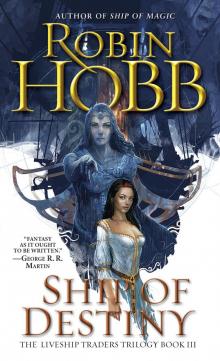 Ship of Destiny
Ship of Destiny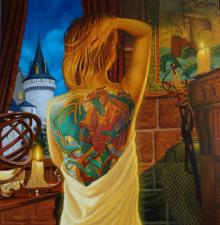 Golden Fool
Golden Fool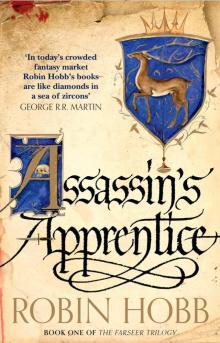 Assassins Apprentice
Assassins Apprentice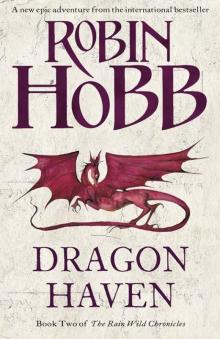 The Dragon Keeper
The Dragon Keeper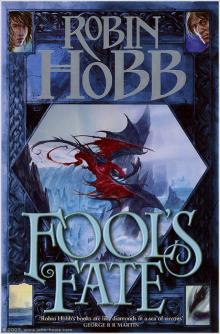 Fools Fate
Fools Fate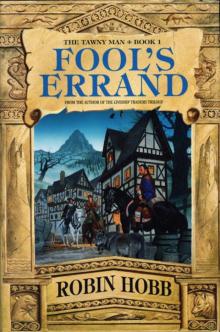 Fools Errand
Fools Errand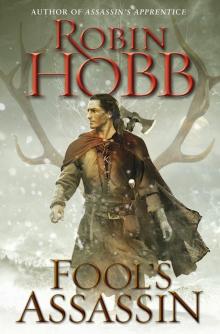 Fools Assassin
Fools Assassin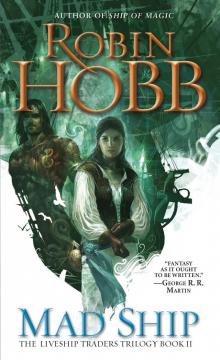 The Mad Ship
The Mad Ship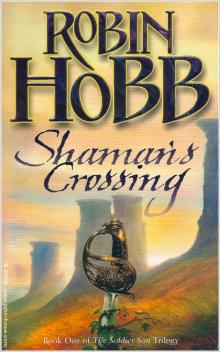 Shamans Crossing
Shamans Crossing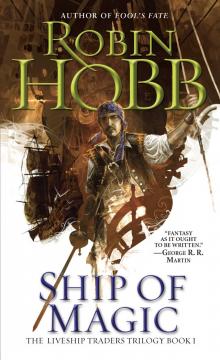 Ship of Magic
Ship of Magic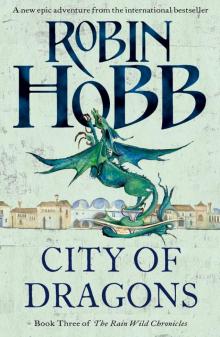 City of Dragons
City of Dragons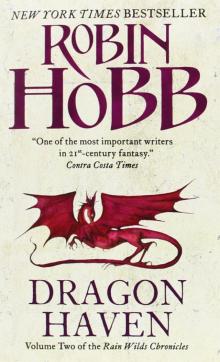 Dragon Haven
Dragon Haven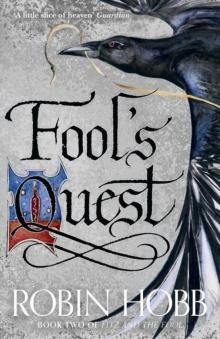 Fools Quest
Fools Quest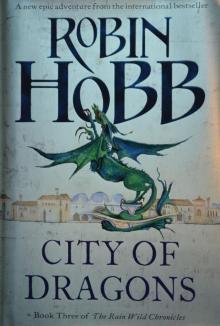 Blood of Dragons
Blood of Dragons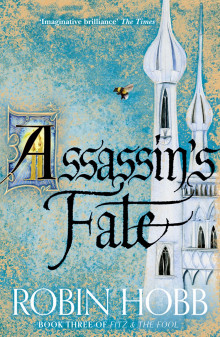 Assassin's Fate
Assassin's Fate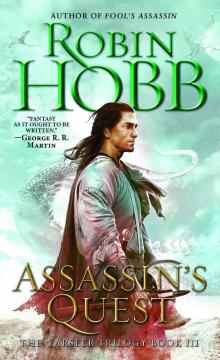 Assassins Quest
Assassins Quest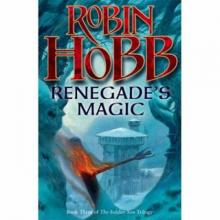 Renegades Magic
Renegades Magic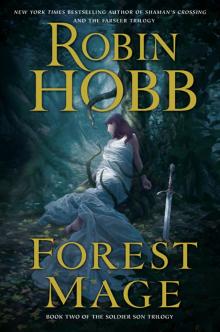 Forest Mage
Forest Mage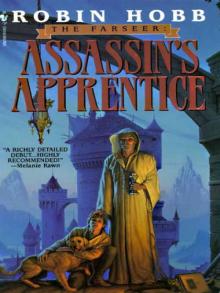 Assassin's Apprentice tft-1
Assassin's Apprentice tft-1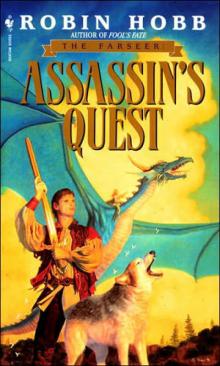 Assassin's Quest tft-3
Assassin's Quest tft-3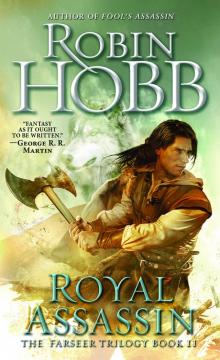 Royal Assassin
Royal Assassin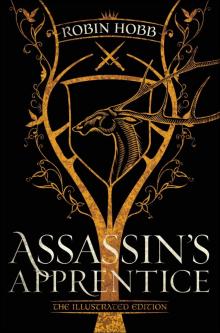 Assassin's Apprentice (The Illustrated Edition)
Assassin's Apprentice (The Illustrated Edition)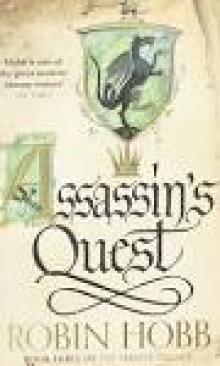 Assassin's Quest (UK)
Assassin's Quest (UK)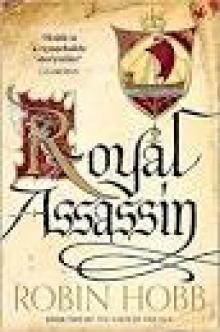 Royal Assassin (UK)
Royal Assassin (UK)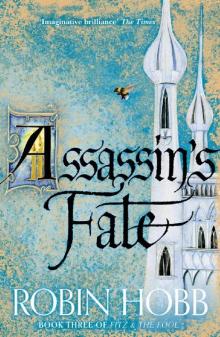 FF3 Assassin’s Fate
FF3 Assassin’s Fate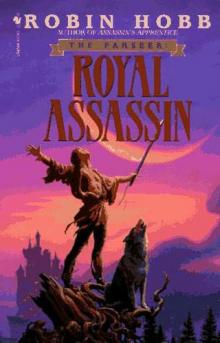 Royal Assassin tft-2
Royal Assassin tft-2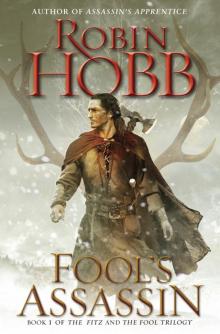 Fool’s Assassin: Book One of the Fitz and the Fool Trilogy
Fool’s Assassin: Book One of the Fitz and the Fool Trilogy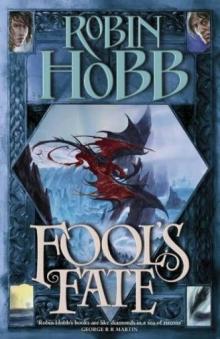 Fool's Fate ttm-3
Fool's Fate ttm-3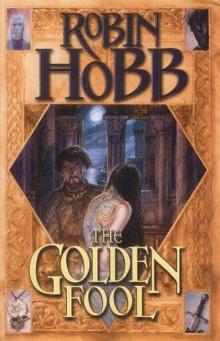 The Golden Fool ttm-2
The Golden Fool ttm-2 The Liveship Traders Series
The Liveship Traders Series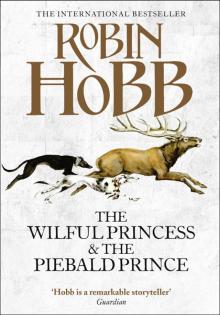 The Wilful Princess and the Piebald Prince
The Wilful Princess and the Piebald Prince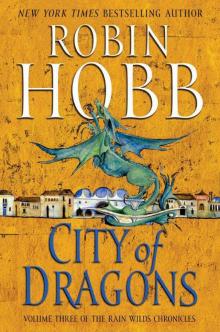 City of Dragons rwc-3
City of Dragons rwc-3 The Tawny Man 1 - Fool's Errand
The Tawny Man 1 - Fool's Errand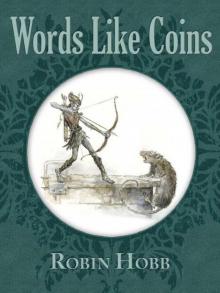 Words Like Coins
Words Like Coins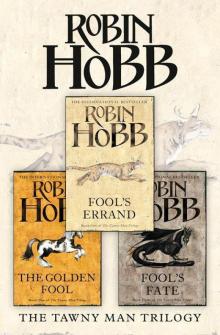 The Complete Tawny Man Trilogy Omnibus
The Complete Tawny Man Trilogy Omnibus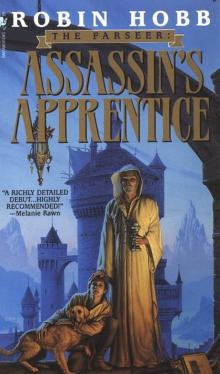 Farseer 1 - Assassin's Apprentice
Farseer 1 - Assassin's Apprentice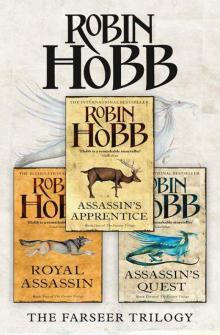 The Complete Farseer Trilogy Omnibus
The Complete Farseer Trilogy Omnibus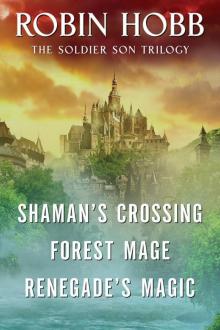 The Soldier Son Trilogy Bundle
The Soldier Son Trilogy Bundle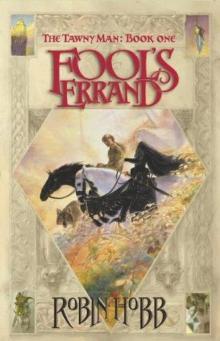 Fool's Errand ttm-1
Fool's Errand ttm-1 Blue Boots
Blue Boots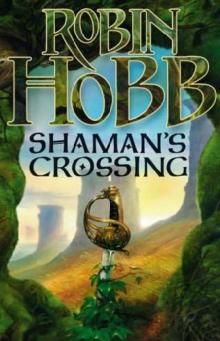 Shaman's Crossing ss-1
Shaman's Crossing ss-1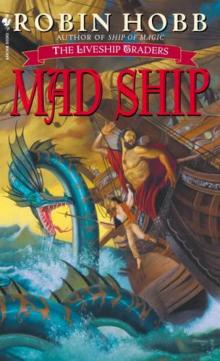 Mad Ship
Mad Ship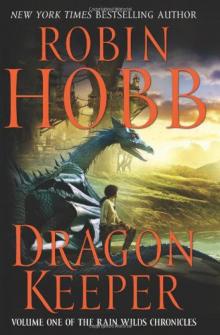 Dragon Keeper
Dragon Keeper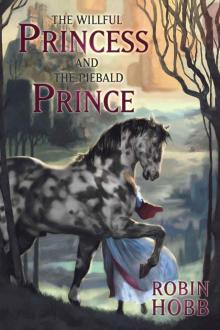 The Willful Princess and the Piebald Prince
The Willful Princess and the Piebald Prince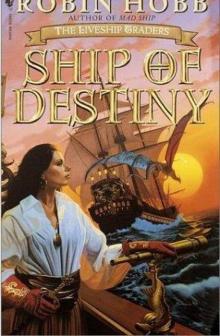 Ship of Destiny tlt-3
Ship of Destiny tlt-3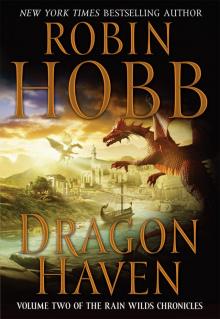 Rain Wild Chronicles 02 - Dragon Haven
Rain Wild Chronicles 02 - Dragon Haven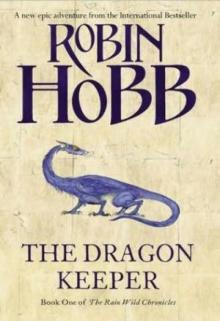 The Dragon Keeper trwc-1
The Dragon Keeper trwc-1 The Triumph
The Triumph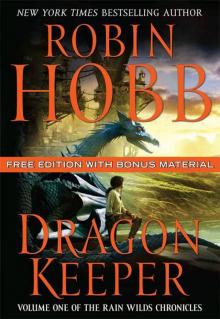 Dragon Keeper Free Edition with Bonus Material
Dragon Keeper Free Edition with Bonus Material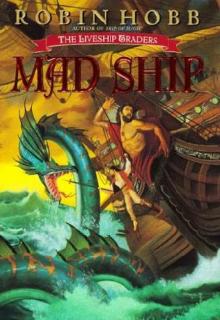 Mad Ship tlt-2
Mad Ship tlt-2 The Inheritance and Other Stories
The Inheritance and Other Stories Tawny Man 02 - Golden Fool
Tawny Man 02 - Golden Fool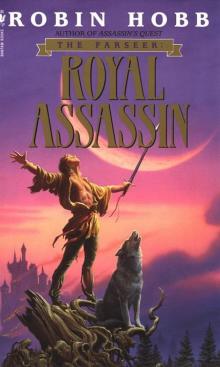 Farseer 2 - Royal Assassin
Farseer 2 - Royal Assassin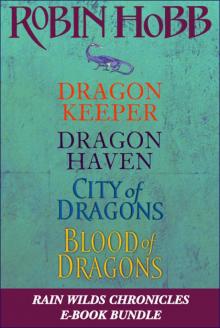 Rain Wilds Chronicles
Rain Wilds Chronicles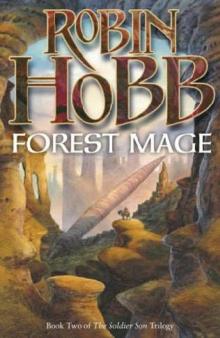 Forest Mage ss-2
Forest Mage ss-2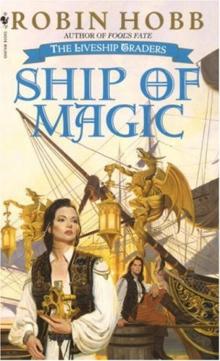 Ship of Magic lt-1
Ship of Magic lt-1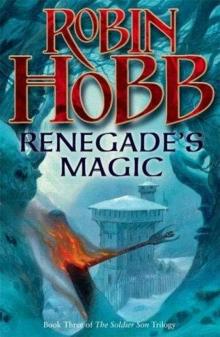 Renegade's Magic ss-3
Renegade's Magic ss-3